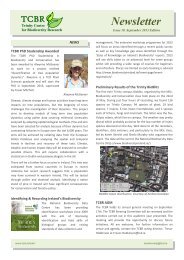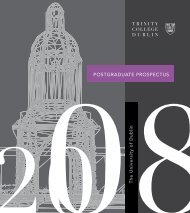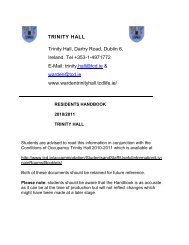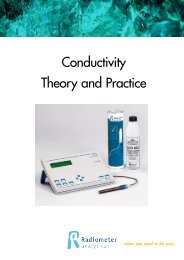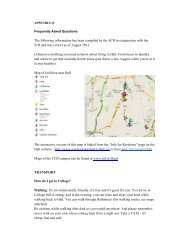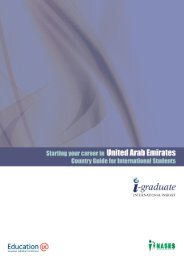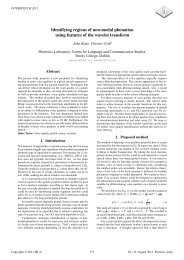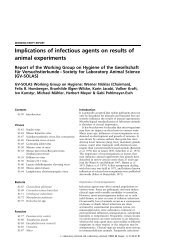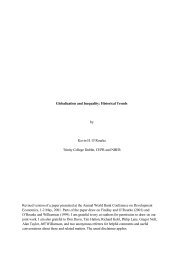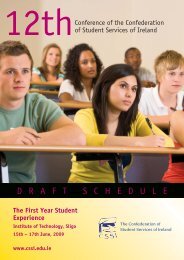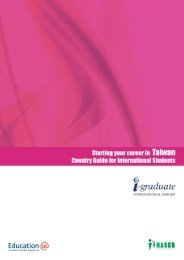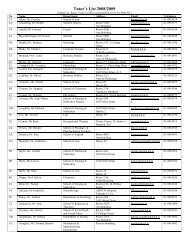Conference Programme (PDF, 1019KB) - Trinity College Dublin
Conference Programme (PDF, 1019KB) - Trinity College Dublin
Conference Programme (PDF, 1019KB) - Trinity College Dublin
Create successful ePaper yourself
Turn your PDF publications into a flip-book with our unique Google optimized e-Paper software.
abstracts by stream and session<br />
The study uses a qualitative multi-actor longitudinal (panel) research design that combines semi-structured interviews (with Polish<br />
teens, their parents and their teachers) with standardised measurements (questionnaires) in order to describe patterns of acculturation<br />
trajectories and patterns of employed strategies.<br />
The first findings reveal that young Polish teenagers sometimes face severe language problems resulting in being moved to lower<br />
streams in school. The experience of social exclusion and of separation from and re-unification with their parents in conjunction with<br />
the status lowering of their parents in the host country produces very dynamic and demanding relations. There is also evidence that the<br />
vibrant processes of identity-formation and adjustment undergo a permanent process of re-definition and re-construction accounting<br />
for variation in acculturation outcomes. The first wave of conducted interviews indicates that sometimes relations with peers from other<br />
ethnic groups can lead to ‘negative social mirroring’ or to ‘acculturative stress’. Therefore there is a need for further investigation because<br />
the new migration has posed many challenges for many Irish schools. Further enquiry will also provide better understanding of the<br />
acculturation phenomena of Polish teens in the Irish context.<br />
“My nationality is Capricorn” - narratives of Russian-speaking adolescents and their parents on migration and its influence on family<br />
practices, parental aspirations and adolescents position at school<br />
Svetlana Eriksson, <strong>Trinity</strong> <strong>College</strong> <strong>Dublin</strong>, Ireland<br />
Target groups: 30 Russian-speaking families from Russia and Latvia currently living in Ireland<br />
Control groups: 15 Russian-speaking families in Russia, 15 Russian-speaking families in Latvia and 15 Irish families in Ireland where one<br />
child has a Russian-speaking classmate<br />
Intergenerational transmission of cultural capital, ethnic identity and values is thought to be more effective in migrant families than in<br />
national/non migrant families, particularly due to strong kinship ties which provide migrants with material and emotional<br />
interdependence; it appears to be an important coping resource and provides continuity with the past (Bryceson and Vuorela 2002; Foner<br />
1997; Goodwin 1999). Sometimes the image of one’s family is thus idealized by migrant children: family as a “happy home” with “precious<br />
objects” (de Leeuw and Rydin 2007,456). Thus, migration acts as a transmission belt, which Schönpflug defines as conditions favourable<br />
for transmission in a particular socioeconomic and cultural context, such as personal characteristics of the transmitter and the receiver<br />
(resources of education and age), and family interaction variables (parenting styles and marital relationship, child-parent dynamics), and<br />
transmission contents (Schönpflug, 2001).<br />
“We wish our children a better life than we had...”<br />
“We are Russian, but our children are Irish...”<br />
“It is amazing how flexible children are and how easily they integrate into the host society!”<br />
These are just a few comments that were obtained during 30 semi-structured interviews conducted with Russian-speaking families from<br />
Russia and Latvia. These comments are not new, nor are they surprising in any way.<br />
The first one is a common reason for families to migrate to another country. The other two bring relief or sorrow to migrant parents when<br />
they are looking back at their decision in hope that it was the right one, and that their children are of the same opinion. Are these beliefs<br />
shared by their children? In the semi-structured interviews I have conducted, children reflect on their position in the classroom and<br />
comment on their lifestyles in Ireland. Their narratives are then compared with perceptions of their parents and their Irish classmates.<br />
Migrant parents are torn by the dilemma: I do not want my children to be strangers in their own family, but I also want them to feel<br />
comfortable in the new context. Is this achievable? Do parents’ aspirations change with migration? Do they remain traditionalists as may<br />
often be the case when families from traditionalist countries find themselves in a new individualist context (Nauck, 2001a, Nauck 2001b,<br />
Nauck 1989), or do they adjust their parental goals and aspirations in accordance with their perceptions of the Irish context? Parents from<br />
the target and control groups dwell on what values they prioritise when bringing their children up, and what motives lie behind this<br />
prioritisation. Families also comment on the distribution of their family roles. A comparative analysis helps to see how the family dynamic<br />
differs in the groups under study.<br />
This study aims at finding out if migration, indeed, is a transmission belt in the complex process of intergenerational transmission of<br />
cultural capital within Russian-speaking migrant families in Ireland.<br />
71



